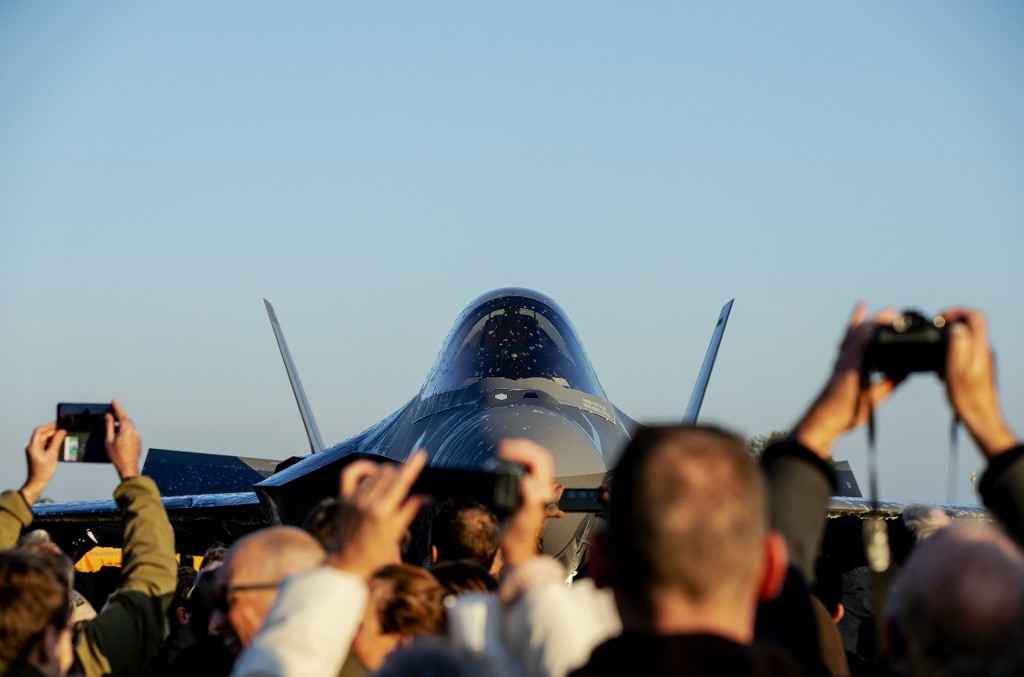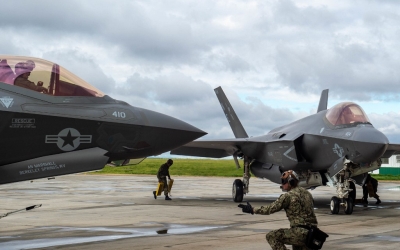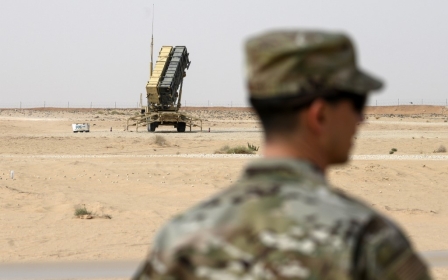Biden administration issues review on US arms sales to Saudi Arabia and UAE

The Biden administration has issued a temporary freeze on pending arms sales to Saudi Arabia and is examining sales to the United Arab Emirates as it issues a review of Trump-era weapons deals, the Wall Street Journal reported.
US officials told the Journal on Wednesday that the Biden administration was reviewing the implementation of recent deals announced by the Trump administration, including the sale of munitions to Saudi Arabia and F-35 fighter jets to the UAE.
Washington's plans to sell advanced stealth fighter jets to Abu Dhabi first surfaced in August, days after the UAE agreed to normalise ties with Israel in White House-brokered talks.
Until then, the US had not allowed any country in the Middle East to purchase the F-35, except Israel, out of concerns the military equipment would damage Israel's qualitative military edge, or QME.
QME is a legal requirement for the US to ensure Israel maintains military superiority in the region.
A senior US official told the Journal that the administration had issued a temporary pause on weapons sales to Riyadh, pending the review process, but that the sales to the Emirates were not being paused while they are being examined.
The freeze on the sale of munitions to the kingdom likely pointed to the sale of 7,500 precision-guided missiles announced by the Trump administration last month.
A State Department spokesman described the action, taken the day after Secretary of State Antony Blinken was sworn in, as "temporarily pausing the implementation of some pending U.S. defense transfers and sales under Foreign Military Sales and Direct Commercial Sales to allow incoming leadership an opportunity to review" the decisions.
"This is a routine administrative action typical to most any transition, and demonstrates the Administration's commitment to transparency and good governance, as well as ensuring U.S. arms sales meet our strategic objectives of building stronger, interoperable, and more capable security partners," the spokesman said.
It wasn't clear how long the pause may be in place.
Raytheon CEO Greg Hayes told investors on Tuesday that he was expecting Biden to block at least one of the weapons manufacturer's recent arms deals with Riyadh.
"We had assumed that we were going to get a license to provide these offensive weapon systems to our customer," the Defense One news site quoted him as saying.
"With the change in administration, it becomes less likely that we're going to be able to get a license for this. And so we appropriately decided that we could no longer support the booking of that contract."
'No peace anytime soon'
Still, despite the freeze, US officials told the Journal that the review of the sales was not unusual, and despite the pause, many of the transactions were likely to go forward.
On the campaign trail, Biden promised to end US support for the Saudi-led war in Yemen, and ensure American weapons were not being used to fuel the conflict.
"The president-elect has made clear that we will end our support for the military campaign led by Saudi Arabia in Yemen, and I think we will work on that in very short order," Blinken said last week during his confirmation hearing.
Rights groups have heavily criticised arms deals with Gulf countries, saying they were being used in the war in Yemen, a country facing what the United Nations describes as the world's worst humanitarian crisis.
Still, while the freeze may signal a shift from the Trump administration, Raytheon's chief said on Tuesday that it would not mean an end to all arms sales to the Middle East.
"Peace is not going to break out in the Middle East anytime soon," Hayes said. "I think it remains an area where we'll continue to see solid growth."
Middle East Eye propose une couverture et une analyse indépendantes et incomparables du Moyen-Orient, de l’Afrique du Nord et d’autres régions du monde. Pour en savoir plus sur la reprise de ce contenu et les frais qui s’appliquent, veuillez remplir ce formulaire [en anglais]. Pour en savoir plus sur MEE, cliquez ici [en anglais].





